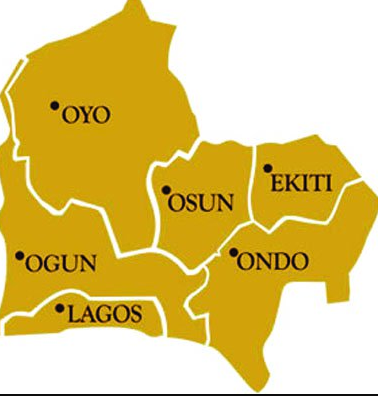Police Ranks in Nigeria and Salary
The Nigeria Police Force is the country’s primary law enforcement agency. Section 214 of the 1999 Constitution of the Federal Republic of Nigeria established it, along with its functions. It includes 15 grades to simplify the administration of the Police Department and the wage structure of its officers. A salary is a monthly payment made by an employer to an employee. This sum is frequently expressed as an annual amount in the employment letter. The rank or position of an individual in an organization, on the other hand, indicates their amount of authority.
Read on if you wish to join the police force and want to learn about the ranks and pay scales associated with each post. This article will look at police ranks in Nigeria, the Nigeria Police Force’s history, functions, and training facilities, as well as how to join the Nigeria Police Force through a degree program, the requirements for attending the Nigeria Police Academy, and how to apply to attend the Nigeria Police Academy. Let us begin by looking at the Nigeria Police Force’s history.
Nigeria Police ranks & salary
Police rank in Nigeria
The Nigerian Police Force has several ranks, each of which has a salary associated with it.
| Rank | Salary (monthly) |
|---|---|
| Inspector-General of Police | ₦711,450.00 |
| Deputy Inspector General of Police | ₦546,572.80 |
| Assistant Inspector General of Police | ₦499,751.90 |
| Commissioner of Police | ₦302,970.50 |
| Deputy Commissioner of Police | ₦278,852.80 |
| Assistant Commissioner of Police | ₦212,938.20 |
| Chief Superintendent of Police | ₦199,723.96 |
| Superintendent of Police | ₦172,089.06 |
| Deputy Superintendent of Police | ₦170,399.70 |
| Assistant Superintendent of Police | ₦156,318.39 |
| Inspector of Police | ₦87,135.10 |
| Sergeant Major | ₦62,204.88 |
| Sergeant | ₦55,973.90 |
| Corporal | ₦51,113.60 |
| Constable | ₦51,113.60 |
History of the Nigeria police
The Nigeria Police Force was established in 1820. The Hausa paramilitary constabulary was founded in 1879.
In 1888, the Royal Niger Company established the Royal Niger Constabulary in the north. The Niger Coast Constabulary for the Niger Coast Protectorate was established in Calabar in 1894. Finally, the Lagos police force was established in 1896.
Following the declaration of the protectorates of Northern and Southern Nigeria, various elements of the existing police forces in the north and south were renamed Northern Nigeria Police and Southern Nigeria Police, respectively.
The provincial police were then nationalized by the colonial government, and the first united Nigeria Police force was formed in 1930.
The Nigerian police force is now led by an Inspector-General of Police (IGP), who oversees 12 operational zonal commands and 37 state commands. An Assistant Inspector General of Police oversees a zone, while a Commissioner of Police oversees a state command.
You have an Assistant Commissioner of Police in charge of the Area command and a Superintendent in charge of the Division command.
Functions of The Nigeria Police Force
Section 4 of the Police Acts and Regulations, lists Nigeria Police functions as follows:
- Implementation of laws and regulations that is within their jurisdiction.
- Security of life and property
- Arresting offenders
- Stopping and detection of crime
- Maintenance of law and order
- Carrying out military assignments in and outside Nigeria as requested by law.
Nigeria Police training
For their recruits, the police have training sites around the country. The following is a list of them.
1. Nigeria Police College
In different parts of the country, there are five police colleges that train recruits for the Nigerian police force. The Oji River, Ikeja, Kaduna, and Maiduguri police colleges are among them.
These training schools are also used by other organizations, such as Nigeria Immigration, to teach their recruits.
Cadet assistant superintendents and cadet sub-inspectors are among the ranks of officers training in these facilities.
2. Additional Institutions
The Police Mobile Force Training School in Abuja, the Counterterrorism (CTU) training school in Rivers State, the Mounted Training Centre, the Police Detective College in Enugu and the Police Dogs Service Training Centre are among the other specialized institutes.
3. Nigeria Police Academy (NPA)
In 2003, the Nigeria Police Academy (NPA) was established to provide police and academic training. The institution is located in the state of Wudil Kano.
The NPA was promoted to a degree-awarding institution by the government in 2012. For five years, you will undergo Police training and academic courses at this Academy.
You will obtain a bachelor’s degree as well as commissioning as an Assistant Superintendent of Police (ASP) in the Nigeria Police Force after graduation.
Entry Levels into The Nigeria Police
This article will not only tell you how much the Nigerian police pay by rank, but it will also tell you about the Nigerian police entry levels and how to join the force.
If you admire the Nigerian police force and want to join them in serving your country, here are the ranks you can join. They are as follows:
- Constable
- Cadet Inspector
- Cadet Assistant Superintendent of Police
- Nigeria Police Academy degree program
How to Join the Police through the Nigeria Police Academy Program
If you want to join the Nigerian police force now that you know how much they pay by rank, let us show you how to do it utilizing the Nigeria Police Academy program.
The commissioned officer position is the finest way to join the Nigeria Police Force.
That entails either attending the Police College and graduating as a Cadet Assistant Superintendent of Police, or enrolling in the Nigeria Police Academy (NPA) and receiving a bachelor’s degree in order to be commissioned as an assistant superintendent of a police rank.
I believe you want to earn a degree and a commission all at the same time. So, as they say, let us teach you how to “kill two birds with one stone.”
The requirements for joining the NPA
Some of the requirements for entering the Nigeria Police Academy are listed below.
- You must be between the ages of 17 and 22.
- Males must be 1.67 meters tall and ladies must be 1.62 meters tall, with no physical deformities.
- You must have a minimum of six credits from WAEC, NECO, or NABTEB exams taken in no more than two sittings, including a credit in Mathematics and English language.
- It is not permissible to present any findings achieved prior to 2015.
- You must also meet the minimum requirements for the written and oral interview sessions.
- Last but not least, you must pass medical and psychological testing.
How to apply to Attend Nigeria Police Academy (NPA)
Follow the steps below to apply online and be considered for the Nigeria Police Academy’s qualifying examination.
- Visit the Nigeria Police Academy Portal at http://polac.edu.ng/purchasepin/
- Fill out the online form on the page to generate a Remita Retrieval Reference (RRR) code.
- The online application form costs N3,500.00
- Either pay with a Card on the Remita website or print the RRR code invoice, to pay for the online application form in any branch of a Nigerian Commercial bank.
- After paying the fee, log on to polac.edu.ng and create an application account
- Next, click on the link labeled “Apply Online” and create your online application account.
- Anytime you want to log into your account, visit polac.edu.ng and use the RRR code you used to create the online account as your Username.
- Also, you must enroll for JAMB and select NPA Wudil as the first choice University.
- Do the Unified Tertiary Matriculation Examination (UTME), and get the cutoff mark that JAMB usually fixes each year.
Conclusion
This article discusses the salaries of Nigerian police officers by rank. You studied the Nigeria Police Force’s history and functions, as well as police training programs and institutions and entry categories.
To make personnel payment straightforward and transparent, the Nigerian Police Force has a well-structured and organized remuneration model for its employees based on the Nigerian Police Salary Structure. The remuneration of a Nigerian police officer is mostly influenced by his or her rank and position within the force.





